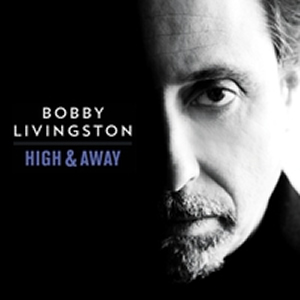 Blues vocalist Cheryl Aruda has been toiling in relative obscurity for too long now. Her debut CD Unrequited Love Songs demonstrates that she is an artist with true vocal fire and songwriting prowess.
Blues vocalist Cheryl Aruda has been toiling in relative obscurity for too long now. Her debut CD Unrequited Love Songs demonstrates that she is an artist with true vocal fire and songwriting prowess.
Opening song “You’re Supposed To Be In Love With Me” dances right in with a knobby, palpable bass line. Aruda’s sultry voice then struts through the groove with her unique vibrancy. Dollops of cool make make you want to dance or bob your head to the rhythms going on. Lead guitarist Bob Enik grinds out a funky riff and the keyboards have that classy upscale tinkle that makes you realize you’re listening to something special.
It can only give a local CD a boost when you have talent like Amadee Castenell on saxy, Susan Goldberg on bass, and Diane Gately on drums. Gately gives the opening track a hearty push and Goldberg keeps the song in the pocket with her handy bass playing bumping things along. Aruda was wise to include the players Gately, Goldberg, and Enik from her blues band Dirty Blonde on over half her tunes. They’re among the best players in town.
Aruda reaches down into her baritone range to do the gospel tined “Heavy In The Levee,” an ode to the people in Louisiana who suffered after Hurricane Katrina. “Heavy In The Levee” has pockets of spiritual oomph that carry it forward with depth and meaning.
Rocking number, “It Was Clear,” is another that gets it kick from Goldberg’s heavy bass line. Gately puts a lot of snap in her drumming and guitarists Mike Williams and Bob Enik add to the blistering heat with some inspired fretwork. From there, Aruda pulls it forward with her svelte, self-restraint. She is the kind of singer that keeps the tension brewing just below the surface. She sounds bad ass when she slows down to an almost conversational vocal pace. This singer has a lot of soul in the vibe of the song and a lot of gritty, earthy rawness in her drawling vocal delivery.
“Lonesome Road” too benefits from Aruda’s self-restraint. She gently applies her sultry heat in this down tempo R&B number. It is uncanny how much power is implied by this singer’s ability to keep things under wraps. Under her mellow swaying voice is a peaceful application of organ chords that keep the sound pleasantly sandwiched between bumpy rhythm section and snappy guitar licks.
“Livin’ Check To Check” grooves on in with style from Perry Rossi’s bopping bass line and Mike Williams greasy guitar leads. This song will likely hit close to home with many struggling in our era of recession and debt spending. Aruda’s cool, matter of fact delivery here brings home the details of juggling bills between paychecks.
Aruda croons with understated grace “The Quicker It‘s Broken.” She handles this down tempo tune with a classy handle on the myriad of crushed emotions that this song is built on. This singer brings you through her heart of tortured feelings with courage and a willingness to face adversity. Her voice only ranges from soft and sultry to just within inches of wanting to belt, and it is, again, Aruda’s self-restraint that makes it moving, keeping that charge of personal misery just below the surface. It also helps to have her friends Goldberg, Gately, Enik, and Rossi along for the ride, building up that heavy storm cloud beneath her delivery.
One of Aruda’s strengths is the way she builds a song structure with the intricate parts from each instrument. Case in point, “Never Gonna See Me Cry,” a beauty of a mid-tempo piano blues number. A barroom keyboard style works well with Aruda’s jaunty delivery. And Aruda’s light sprinkle of percussion gives this piece an infectious quality that can’t be denied. Her sousaphone work adds an extra dose of low end notes that perfectly compliments her tune.
“Will You Be There To Catch Me When I Fall” is a hauntingly beautiful piano ballad. Aruda gives her voice a workout with vocal sustains that power this one with a depth of feeling and talent. The lonesome, forlorn piano notes create a perfect backdrop for Aruda’s deep plunge into tenderness. On an album loaded with songs of heartbreak and unrequited love, this one shines brightest with its yearning for comfort and a need for questioning. Aruda creates a lot of drama here and she is working with only a solo piano underneath her voice.
“Let Me Back Into Your Heart” has a jazzy exuberance created by Castenell’s sax and Mark Hamilton’s trombone. This swelling horn duo give Aruda an embracing warmth as her vocal puts a return embrace over the whole of the musicians’ parts. She layers a vocal over a heavy, wide sound to create something that wraps the listener in comfortably on their journey through her expressions.
Aruda has come up with a lot of good stuff here. Unrequited Love Songs is an album blues and R&B fans will want to buy immediately.

